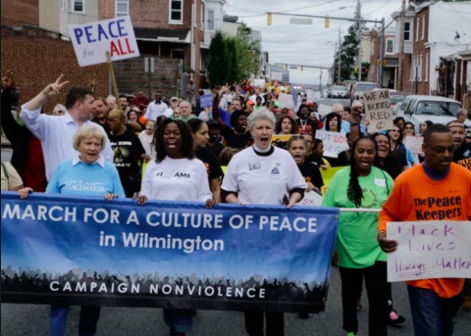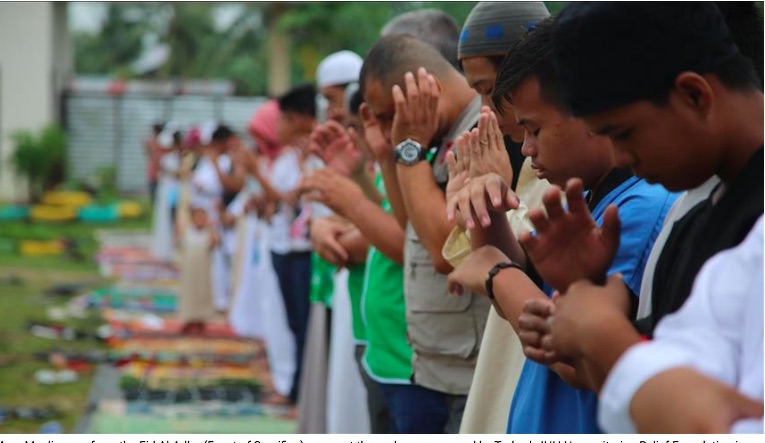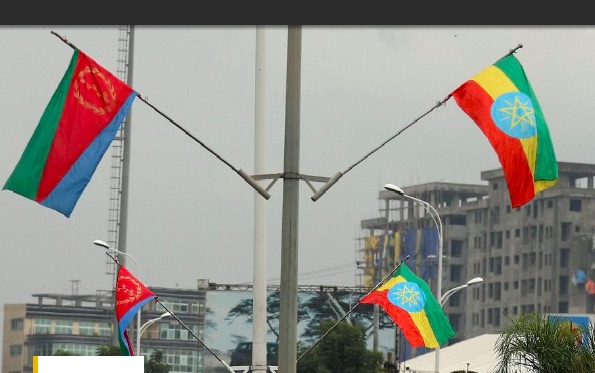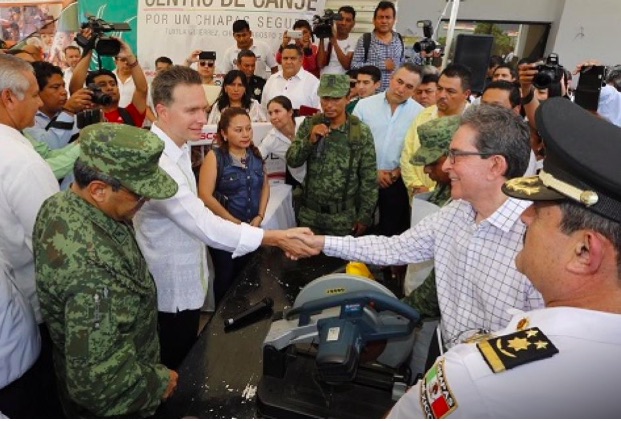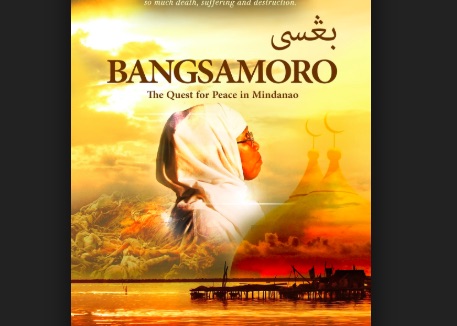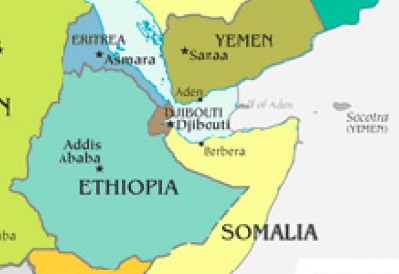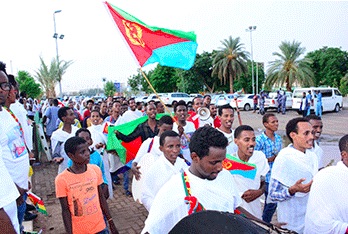DISARMAMENT & SECURITY .
An announcement from World Beyond War
Join World BEYOND War for our annual global conference in Toronto on September 21 and 22, 2018, at OCAD University (Ontario College of Art and Design University), 100 McCaul St, Toronto, ON M5T 1W1, Canada.
At #NoWar2018 we will explore how the rule of law has been used both to restrain war and to legitimize it — and how we can re-design systems to abolish the institution of war and uphold human and ecological justice.

Video for the conference
The conference will take place on Friday September 21 (5:00 p.m. to 9:00 p.m., doors open at 4:00 p.m.) and Saturday September 22. (9:00 a.m. to 7:30 p.m., doors open at 8:00 a.m.).
BEFORE THE CONFERENCE:
Thursday, September 20, 6:00 p.m. – 8:00 p.m. in the Lambert Lounge, on the first floor of the main building at OCAD University: Inside Iran: Exclusive Book Talk with CODEPINK Co-Founder Medea Benjamin. RSVP.
Friday, September 21, 1:00 p.m. — 3:00 p.m. Canadian Voice of Women for Peace (VOW)’s Annual General Meeting at 519 Church St, Room 301 in Toronto. Open to the public.
AFTER THE CONFERENCE:
Sunday, September 23 at 10:00 a.m. — 12:00 p.m. “Inspirational Women Brunch: Shaping Peace Through Feminism” hosted by Canadian Voice of Women for Peace (VOW), with special guests Medea Benjamin and Ray Acheson at Metro Hall, Room 308, 55 John Street, Toronto. Join #WomenShapingPeace for brunch to talk peace over pancakes and learn how you can take action to make our feminist vision of peace a reality. Purchase tickets here.
Sunday, September 23, 2:00 p.m. – 4:00 p.m. Blue Scarf Peace Walk. Meet at Grange Park on Beverly St. just south of Dundas St. W. Get a PDF flyer. Buy some blue scarves.
List of confirmed speakers
Conference Schedule:
September 21, 2018, International Day of Peace
4:00 p.m. Doors open for checking in (and picking up boxed dinners), tabling, meeting and greeting.
5:00 p.m. Welcome by Leah Bolger, Peter Jones; and Iehnhotonkwas Bonnie Jane Maracle providing land recognition. Brief reports from World BEYOND War chapters around the world. In Butterfield Park.
5:45 p.m. Opening remarks by Christine Ahn and Ravyn Wngz. Moderator: David Swanson. In Butterfield Park.
7:00 p.m. Music of Tom Neilson and Lynn Waldron. In Main Auditorium (Room 190).
7:45 p.m. — 9:15 p.m. Plenary: Using the Rule of Law Against War with Gail Davidson, Daniel Turp, and Ray Acheson. Moderator: Kevin Zeese. In Main Auditorium (Room 190).
September 22, 2018, Saturday
8:00 a.m. Doors open for tabling, light breakfast fare.
9:00 a.m. Plenary: Canadian Weapons, Wars, and Indigenous Rights with Tamara Lorincz, William Geimer, and Lee Maracle. Moderator: Lyn Adamson. In Main Auditorium (Room 190).
10:15 a.m. Break.
10:30 a.m. Plenary: Global Governance: Actual and Potential with Kent Shifferd, James Ranney, and Branka Marijan. Moderator: Tony Jenkins. In Main Auditorium (Room 190).
11:45 a.m. Break.
12:00 p.m. Lunch. Boxed lunches provided. Optional small-group discussions:
Intersectionality: A brainstorm session on “fusion organizing”: how to connect the dots and foster collaboration between the anti-war movement and the movements for ecological, economic, racial, and social justice. Facilitator: Greta Zarro. In Butterfield Park.
Creative Activism: Brainstorming ideas for creative, nonviolent action. Facilitator: Medea Benjamin. In Atrium.
Popcorn & a Movie: “The World Is My Country.” Broadway actor Garry Davis, desperate to stop a war, pulls off an act of political comedy so gutsy and eye-opening that it sparks a huge movement for World Citizenship — and legalizing peace! Martin Sheen calls this lost piece of history a “roadmap to a better future.” It’s a fun and entertaining outreach tool to draw new people into WBW. Q & A with the filmmakers – Melanie Bennett and Arthur Kangis. In Main Auditorium (Room 190).
How the Internet Changes Activism: It’s a new world for those of us who want to change it. Facebook, Twitter, email, cryptocurrency and Internet privacy are some of the hot topics we’ll talk about in an open dialogue led by two maintainers of the World BEYOND War website and social media channels. Facilitators: Donnal Walter, Marc Eliot Stein. In Room 187.
Ideas collected by facilitators will be shared through WBW website.
Upgrading the Kellogg-Briand Pact with Kent Shifferd and David Swanson.
This workshop will cover a brief history of the Kellogg-Briand Pact 1928 treaty to end war, its current status, what has and has not been accomplished, and what we can do to make it more effective including bringing a new treaty to the UN General Assembly. Room 230.
(continued in right column)
Question for this article:
The peace movement in the United States, What are its strengths and weaknesses?
(continued from left column)
1:30 p.m. Workshops:
Disrupting the Business Models of War with Peter Jones, OCAD University and Stephen Sillett.
This workshop looks at long-term strategies for facilitating a transition to new public policy and industry models that might replace war-making as a core function of Western governments.
We’ll consider how the business of the military and the industrial complex are entwined in a long-standing business model of publicly funded international violence that requires a constant flow of new enemies and targets served to the public payers. Large group and small group sessions will design and propose alternatives to the post-war, state-industrial business model which has become extremely expensive and yields poor return on public investment. Room 506.
Departments and Other National Infrastructures for Peace – A Way Forward with Saul Arbess and Anne Creter.
This workshop will present the movement for departments of peace (DoP) and progress made to date, with four countries having DoPs and others with proposed legislation, highlighting Canada and the U.S. The conversation will be broadened by consideration of other national infrastructures for peace(I4P) and a UN resolution calling for I4Ps in all member states, to counteract the military infrastructures for war and violence and to provide a legal framework for conflict resolution by peaceful means at home and abroad. Room 542.
War Tax Resistance: Legality, Practicality, Value with Doug Hewitt-White.
There are active Peace Tax Fund campaigns worldwide. Tax resistance to paying for the military began in Canada over 200 years ago. Legislation has been proposed here in Canada and several other countries. Yet legally redirecting the military portion of our taxes to support peace programs is not yet sanctioned. This workshop will examine and discuss the legal basis for conscientious objection to military service and taxation. Is there a fundamental human right at stake? How practical is tax resistance? How effective is military tax redirection at advancing the cause of peace? Is it an important and valuable strategy? Room 556.
Citizen Action Using the Law with Daniel Turp, and Gail Davidson.
This session will provide participants with an understanding of how individuals and groups can initiate legal actions under domestic and international law to oppose war and associated illegalities of torture and arms sales. We will discuss civil disobedience, the use of universal jurisdiction, the International Criminal Court, Citizens’ Tribunals, the United Nations treaty monitoring bodies, available remedies, and issues of standing in Canadian courts. We’ll evaluate lessons learned from past examples of such initiatives in Canada and around the world. Room 544.
World Peace through World Citizenship and the Global Rule of Law with David Gallup.
What do you think are the most important questions of the 21st century to achieve a sustainable, just and peaceful world? Come prepared with ideas to discuss. This workshop will explore holistic alternatives to the divisive politics of nationalism. We will contemplate how to create spaces (social, legal, political, governmental, and ethical) where humans can interact peacefully and sustainably with each other and the earth. We will examine how world citizenship and world law provide a better alternative to national citizenship and national law. This session will end with a discussion about how world peace, as well as human and environmental sustainability, depend upon the advancement of common world law. Room 554.
2:45 p.m. Break.
3:00 p.m. Workshops:
Organizing 101: Strategy, Intersectionality, and Millennials with Greta Zarro.
In this session, we will discuss the nuts and bolts of grassroots organizing, with a focus on campaign development. We’ll identify effective strategies & tactics for engaging community members and influencing decision-makers. We’ll also look more broadly at movement-building from the perspective of “fusion” organizing and youth activism. Room 506.
Divestment from War Profiteers with Medea Benjamin.
Weapons manufacturers like Lockheed Martin, Boeing, Northrop Grumman, and many others have been making a killing on killing by profiting from the death and destruction that their products cause. Enough is enough! In this workshop, learn about and engage with CODEPINK’s Divest from the War Machine campaign. This divestment campaign calls for a radical reimagination of American priorities. Revoking the power of those who profit most from war-making is the first step in transforming our nation and ending the spread of violence, oppression, and death at home and abroad. We will strategize how to best bring the Divest campaign into your community. Room 230.
“Push Pins” Holding Up The Map of Empire: U.S. Military Bases Around the World with Leah Bolger.
How many foreign military bases does the U.S. have? 100? 300? The answer is over 800! Why does it have so many? We’ll talk about the role that these bases play in U.S. foreign policy, and their effect on global relations, as well as efforts to close them down. Room 544.
Organizing Locally to Block National Support for a War with Shreesh Juyal and Rose Dyson.
In 2003, Prof. Juyal collaborated with 88 cities’ community groups and organized mass rallies which successfully persuaded the Government of Canada to not take part in the Iraq War. The belligerent pressure of the United States on its NATO ally Canada did not succeed. This workshop will strategize and plan for application of a similar model in Canada and other nations around the world to resist current and future wars, bases, and war preparations. Room 556.
Peoples’ Tribunals with Tom Kerns.
Peoples’ tribunals provide a powerful platform for championing human rights. As a tactic in the activist toolbox, peoples’ tribunals can help increase States’ and non-state actors’ recognition of and respect for human rights, and help reduce the likelihood of war. This session will look at examples of peoples’ tribunals around the world in the past several decades. It will also more fully describe the Permanent Peoples’ Tribunal Session on Human Rights, Fracking, and Climate Change. Room 554.
Learning Peace in Schools with Tony Jenkins.
This workshop will analyze the contradictory ways in which children are being taught to embrace both war and peace in the schools. We’ll examine the increasingly bellicose content of textbooks and various military programs in the nation’s schools, while looking at exciting developments in teaching peace and nonviolent conflict resolution. Room 542.
4:15 p.m. Break.
4:30 p.m. Reports Back from Workshops, Discussion of Plans. Moderator: Marc Eliot Stein. In Main Auditorium (Room 190).
5:45 p.m. Break.
6:00 p.m. — 7:30 p.m. Energizing the War Abolition Movement in Canada and Globally with Kevin Zeese, Yves Engler, and Azeezah Kanji. Moderator: Greta Zarro. In Main Auditorium (Room 190).
Registration
